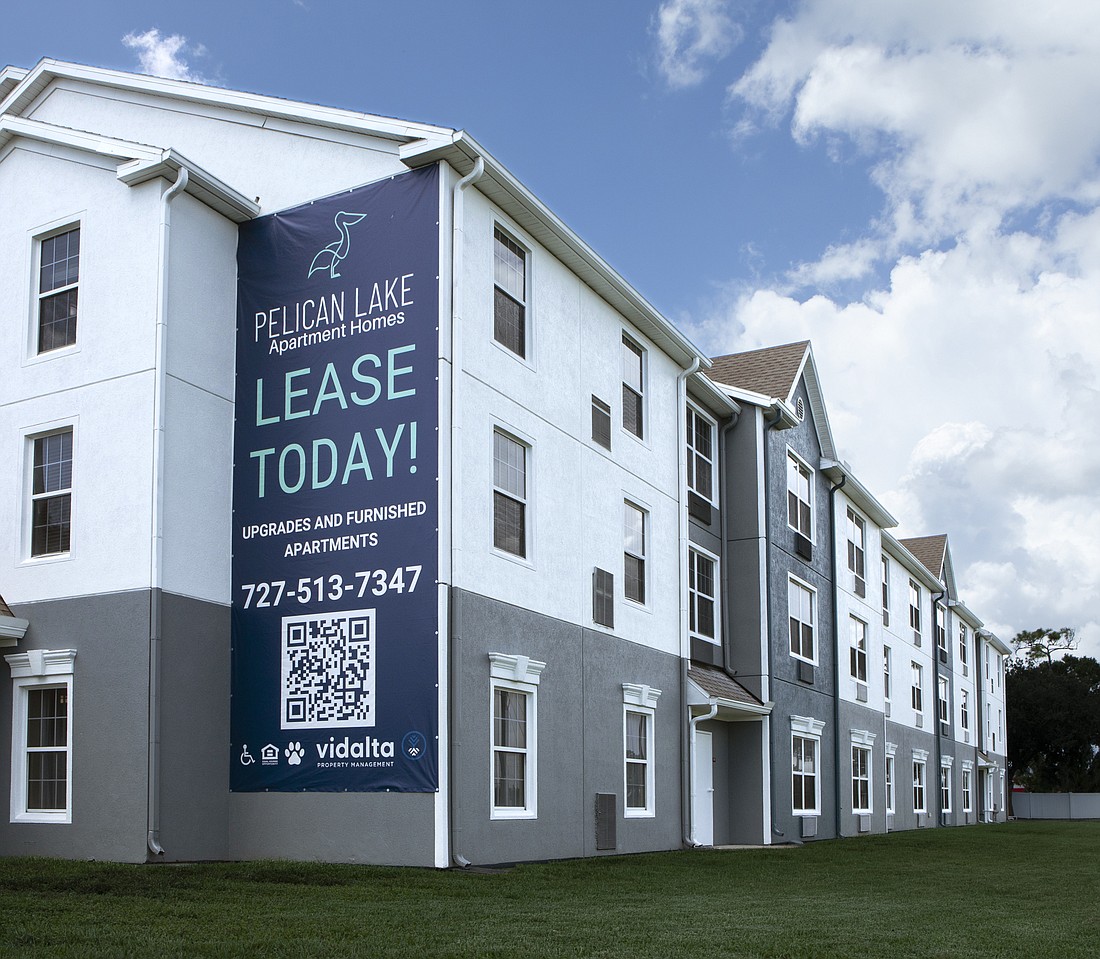- December 13, 2025
-
-
Loading

Loading

Months after buying two Pinellas Park hotels and announcing the properties would be transformed into apartments, a Miami developer has opened the first phase of the project, bringing new units to an area in need of affordable and attainable housing.
The complex that’s evolved out of two hotels in a high traffic area of Pinellas County, between St. Petersburg and Clearwater, is called the Pelican Lake Apartment Homes.